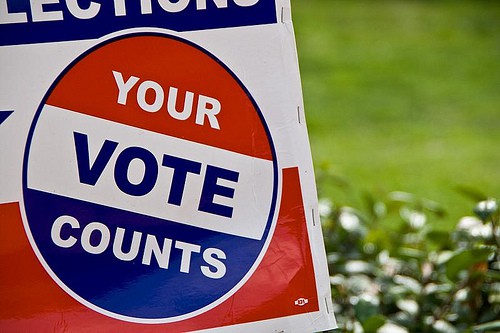Students remain apathetic about SGA voting

Photo courtesy of flickr.com
March 4, 2019
In last year’s Student Government Association (SGA) elections, only 32 percent of the University’s total population logged onto myBama to cast their votes, according to a report released by the University.
Of the votes that were cast, 2 percent of the presidential vote went to people such as Tua Tagovailoa, Nick Saban, Collin Sexton, Harambe and other write-ins who each received anywhere from one to 10 votes, according to the same report released by the University last year.
The University also reported that all of the vice presidential positions received satirical responses. In each of the vice president positions, the runner up was “The Machine controls the campus, democracy in student government is a facade,” and other vote recipients included Damien Harris, Bernie Sanders and Big Al.
The results of last year’s elections illuminate the attitude that some UA students have about SGA elections. While some students take it very seriously and cast their votes for those they believe would be fit for the job, others don’t believe in the SGA and its elections, so they either cast sarcastic ballots or don’t vote at all.
The issue of Greek influence in SGA elections has been a longstanding issue, and many students let it stop them from voting in elections. The influence is rooted in the Machine, a supposed secret political society within the Greek system.
“The election is so heavily influenced by Greek life, if you aren’t in Greek life, you’re the minority in terms of voting, and so your vote basically doesn’t matter,” said Emily Vallario, a sophomore majoring in creative media.
Trey Dickey, a freshman majoring in creative media, said students should stand up against voting blocks like the UA Greek system and make their votes count.
“I am voting because I feel like it is my duty to express who I support through votes,” Dickey said. “The fact that I am not in a Greek organization automatically puts me in the minority, but I think I should show my support to those like me.”
Dickey said he believes that others should do the same and show support to those who are more like them.
Other students have found different reasons to stay away from the polls. One problem students ran into was not knowing enough about the candidates and not being able to find anything out about them.
“I won’t be voting because I don’t feel like I am educated enough about those who are running,” said Candace Davis, a junior majoring in theatre and communication studies. “There are brief summaries online, but there’s not really enough to know.”
Another concern voiced by students was that the SGA doesn’t do anything that will affect them. While they pass bills and make some decisions that affect the whole campus, students are unaware of the impact that the SGA has on their personal lives.
Trinity Williams, a freshman majoring in human performance and exercise science, said she doesn’t feel like SGA affects her personally, so she probably won’t vote.
“I’ve never seen an instance where I’ve been affected by them, so I don’t feel the need to vote,” Williams said.










